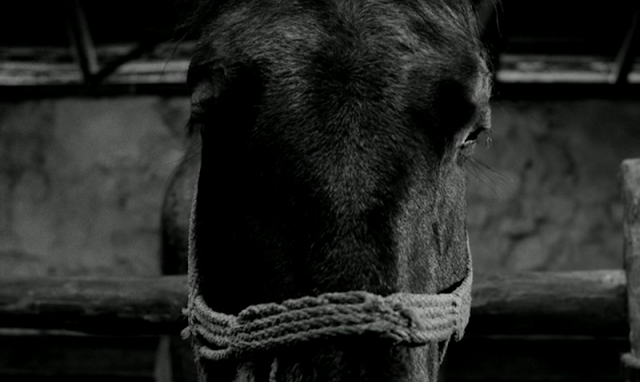We Bought A Zoo
Cameron Crowe, 2011
Crowe, baby. "We Bought A Zoo" is to Cameron Crowe as "The School of Rock" is to Richard Linklater - a little obligatory in its stylings and aims but a truly endearing success in so many ways. Indeed, a younger audience is in mind and certain silly characters or gags could stand to be excised from an artistic stance, but this is perhaps the most emotionally heavy "PG" I've seen - to watch it is to choke back tear-bursts for 2 hours before the final scene, while definitively and powerfully "feel good" in nature, forces even the most hardened among us to crumple in a heap of weep. Our characters, ramshackles in glossy veneers, inspire us to love more directly. In what almost feels an oddity in the modern age, they are not connected to Facebook or attached to iPhones - their endeavors are more explicit and affecting. Their departed wife and mother remains a presence throughout, infallible in her absence as we are not subject to judging her through action, only reverent recollection. Even off-hand comments about her from Matt Damon's character stop you in your tracks. Conflicts with genuine feeling may find you siding with one character or another, but realistically feature valid points on either side, making for some truly rewarding argument sequences. One in particular eventually culminates with a scene (pictured above) appropriately mirroring the "I always liked George" bit in "Vanilla Sky". And hey, Scarlett Johansson actually delivered a worthwhile post-"Lost In Translation" performance! About time (note: as an acquaintance has pointed out, I forgot about "Scoop", in which she is indeed quite good).
Further first-time viewings:
Cave of Forgotten Dreams - Werner Herzog, 2010
In what appears to have become typical Herzog fashion, there are some jaw-gaping moments of sheer wonder here, but moreover the piece is a borefest. The director may have involved himself all too personally in Timothy Treadwell's aftermath, but at least "Grizzly Man" was enjoyable and thematically intriguing. That said, I do wish I had seen "Cave" in the assuredly innovative 3D.
The Adventures of Tintin: The Secret of the Unicorn - Steven Spielberg, 2011
Here's another title where I'll have to provide the disclaimer that I did not see the whole thing. But, please don't make me... I've seen the better part of the third act twice now and while, sure, the facial texture/animation is impressive, nothing else appears to be. The script in particular is atrociously rigid.
Total: 3
Rewatches (3): Young Adult x2 (Reitman, 2011), Take Me Home Tonight (Dowse, 2011), The Muppet Christmas Carol (B. Henson, 1992)
-Keep an eye out for a forthcoming "Why I Adore Young Adult" entry.
Cameron Crowe, 2011
Crowe, baby. "We Bought A Zoo" is to Cameron Crowe as "The School of Rock" is to Richard Linklater - a little obligatory in its stylings and aims but a truly endearing success in so many ways. Indeed, a younger audience is in mind and certain silly characters or gags could stand to be excised from an artistic stance, but this is perhaps the most emotionally heavy "PG" I've seen - to watch it is to choke back tear-bursts for 2 hours before the final scene, while definitively and powerfully "feel good" in nature, forces even the most hardened among us to crumple in a heap of weep. Our characters, ramshackles in glossy veneers, inspire us to love more directly. In what almost feels an oddity in the modern age, they are not connected to Facebook or attached to iPhones - their endeavors are more explicit and affecting. Their departed wife and mother remains a presence throughout, infallible in her absence as we are not subject to judging her through action, only reverent recollection. Even off-hand comments about her from Matt Damon's character stop you in your tracks. Conflicts with genuine feeling may find you siding with one character or another, but realistically feature valid points on either side, making for some truly rewarding argument sequences. One in particular eventually culminates with a scene (pictured above) appropriately mirroring the "I always liked George" bit in "Vanilla Sky". And hey, Scarlett Johansson actually delivered a worthwhile post-"Lost In Translation" performance! About time (note: as an acquaintance has pointed out, I forgot about "Scoop", in which she is indeed quite good).
Further first-time viewings:
Cave of Forgotten Dreams - Werner Herzog, 2010
In what appears to have become typical Herzog fashion, there are some jaw-gaping moments of sheer wonder here, but moreover the piece is a borefest. The director may have involved himself all too personally in Timothy Treadwell's aftermath, but at least "Grizzly Man" was enjoyable and thematically intriguing. That said, I do wish I had seen "Cave" in the assuredly innovative 3D.
The Adventures of Tintin: The Secret of the Unicorn - Steven Spielberg, 2011
Here's another title where I'll have to provide the disclaimer that I did not see the whole thing. But, please don't make me... I've seen the better part of the third act twice now and while, sure, the facial texture/animation is impressive, nothing else appears to be. The script in particular is atrociously rigid.
Total: 3
Rewatches (3): Young Adult x2 (Reitman, 2011), Take Me Home Tonight (Dowse, 2011), The Muppet Christmas Carol (B. Henson, 1992)
-Keep an eye out for a forthcoming "Why I Adore Young Adult" entry.




























